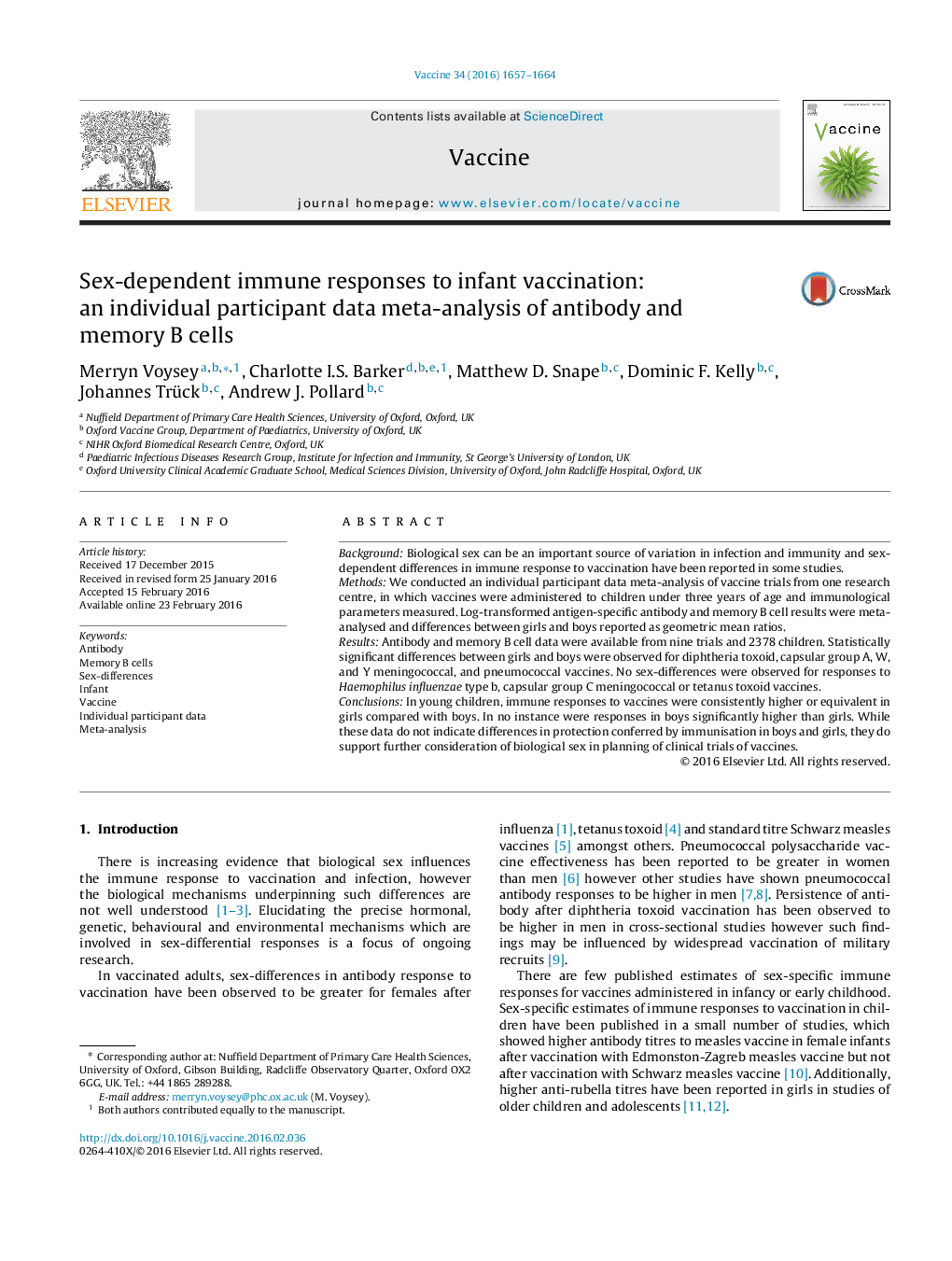| Article ID | Journal | Published Year | Pages | File Type |
|---|---|---|---|---|
| 2402169 | Vaccine | 2016 | 8 Pages |
BackgroundBiological sex can be an important source of variation in infection and immunity and sex-dependent differences in immune response to vaccination have been reported in some studies.MethodsWe conducted an individual participant data meta-analysis of vaccine trials from one research centre, in which vaccines were administered to children under three years of age and immunological parameters measured. Log-transformed antigen-specific antibody and memory B cell results were meta-analysed and differences between girls and boys reported as geometric mean ratios.ResultsAntibody and memory B cell data were available from nine trials and 2378 children. Statistically significant differences between girls and boys were observed for diphtheria toxoid, capsular group A, W, and Y meningococcal, and pneumococcal vaccines. No sex-differences were observed for responses to Haemophilus influenzae type b, capsular group C meningococcal or tetanus toxoid vaccines.ConclusionsIn young children, immune responses to vaccines were consistently higher or equivalent in girls compared with boys. In no instance were responses in boys significantly higher than girls. While these data do not indicate differences in protection conferred by immunisation in boys and girls, they do support further consideration of biological sex in planning of clinical trials of vaccines.
